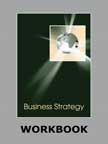Toyota Motor Corporation – Losing 'The Toyota Way'? |
ICMR HOME | Case Studies Collection
» Business Strategy Case Studies Please note: This case study was compiled from published sources, and is intended to be used as a basis for class discussion. It is not intended to illustrate either effective or ineffective handling of a management situation. Nor is it a primary information source. |
||||||||
Crisis at Toyota cont...
Analysts attributed the quality lapses to Toyota's shifting focus from quality to growth and the drastic cost-cutting measures that the company undertook. They also blamed the company's organizational structure for the problems, saying that it hampered smooth communication between Toyota's headquarters and its offices in other countries. According to Takahiro Fujimoto, Professor of Economics, University of Tokyo, "Toyota faced excessive or overwhelming complexity that even its strong capability could not handle adequately. At the same time, simultaneous pressures came from volume over-extension, possible quality arrogance caused by its long track record of quality excellence, collapse of demand in the U.S. (particularly luxury sales due to the financial crisis), plus other mistakes and some bad luck -- creating something like a chemical reaction.5"
5] "Quality on the Line: The Fallout from Toyota's Recall," http://knowledge.wharton.upenn.edu, February 03, 2010.
|
Case Studies Links:-
Case Studies,
Short Case Studies,
Simplified Case Studies. |



